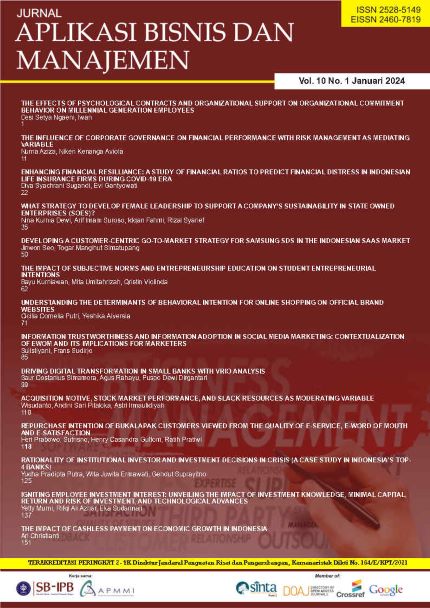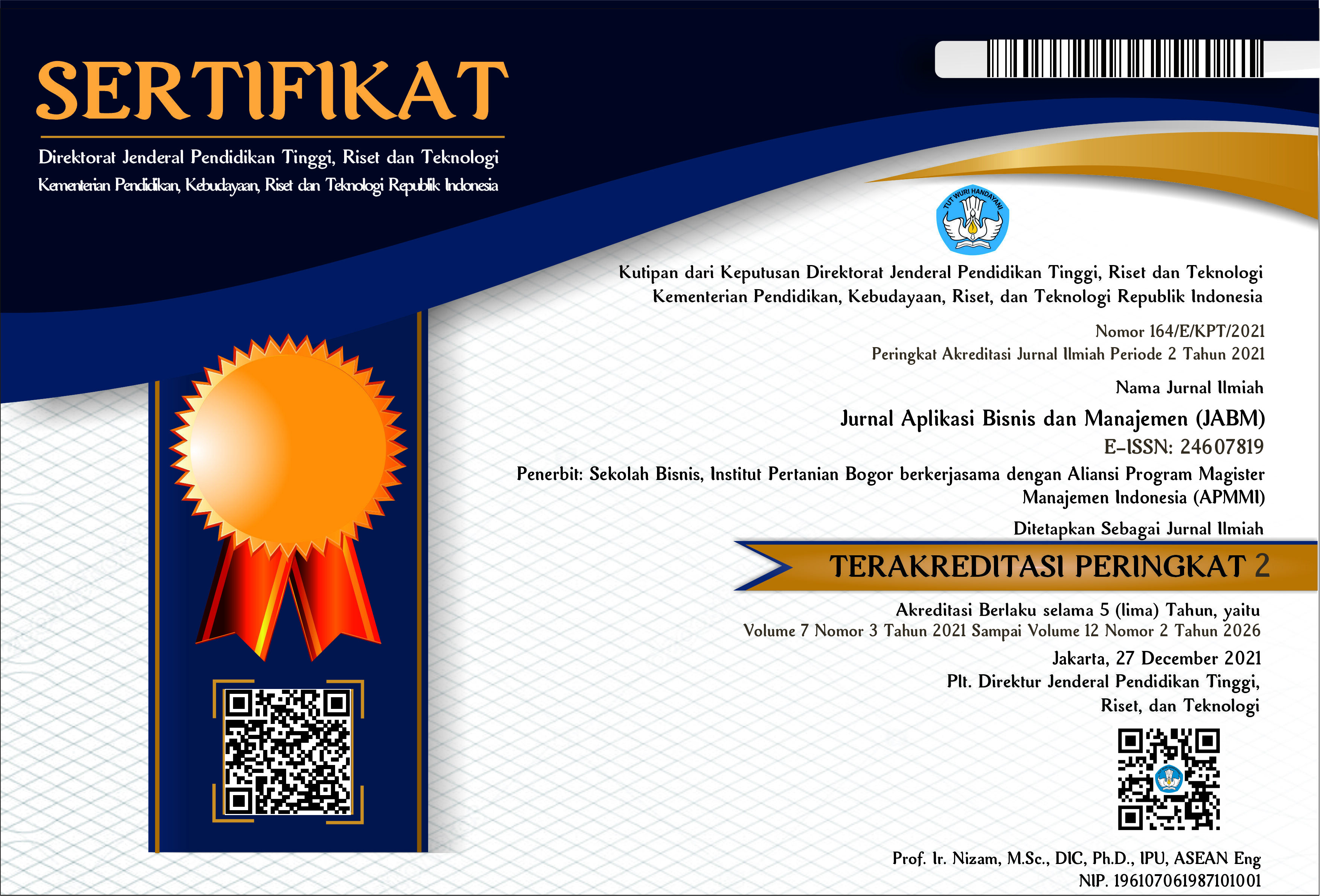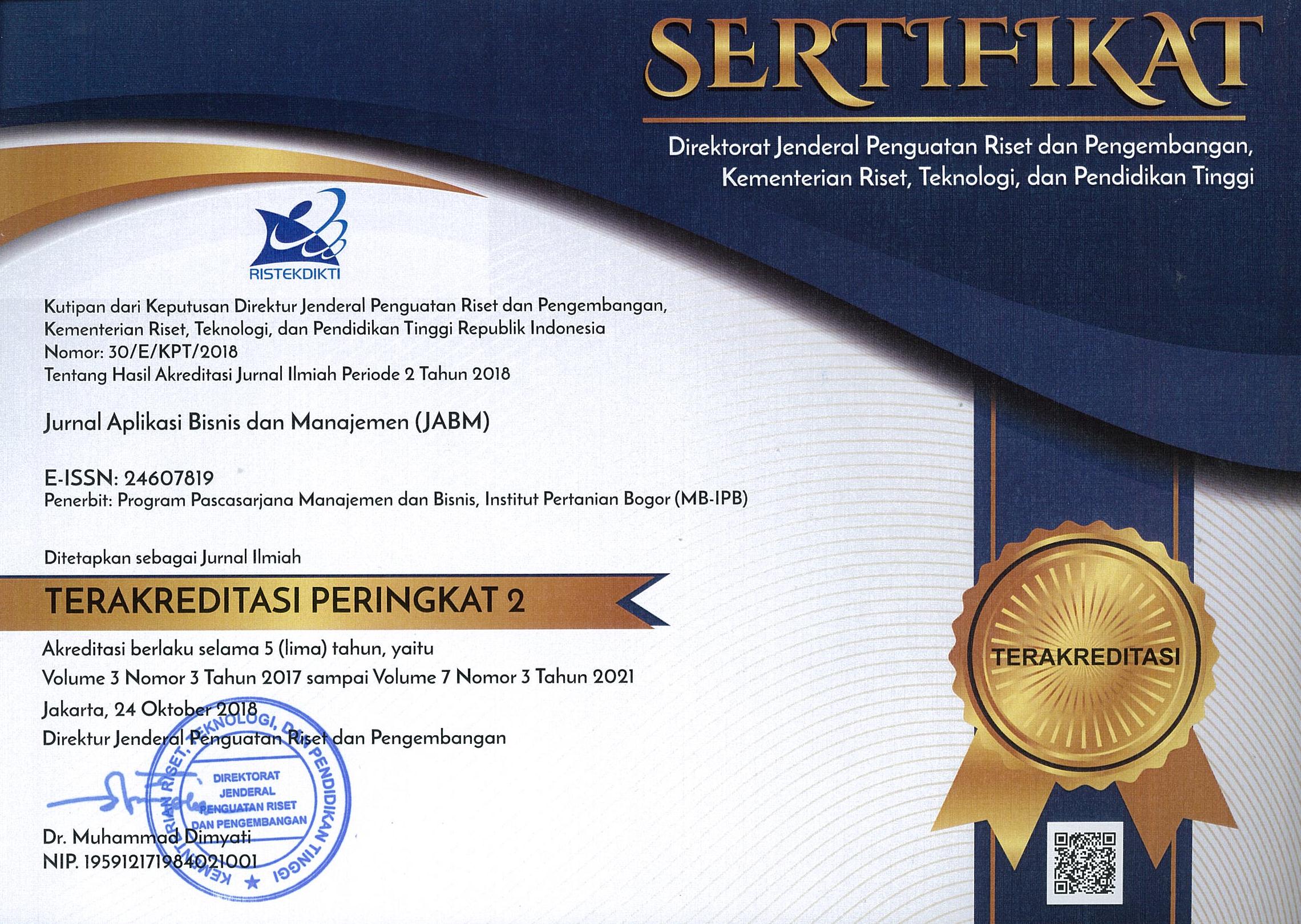The Impact of Cashless Payment on Economic Growth in Indonesia
Abstract
The development of digitization in payments has begun to replace cash payments with cashless payments. This study examines the effect of cashless payments on economic growth in Indonesia using quarterly data from 2010 to 2021. Economic growth in this study is proxied by gross domestic product, and cashless payments are proxied by transaction values from ATMs/debit cards, credit cards, and electronic money. The quantitative analysis method used in this research is time series with Error Correction Modeling (ECM). One of the benefits of ECM is that this model can be used to see the effect of economic variables in the short and long term. The study results show that cashless payments do not affect economic growth in the short term. However, in the long run, cashless payments in the form of ATM/debit and electronic money positively affect Indonesia's economic growth, even though these results have remained consistent during the Covid-19 pandemic. The results of this study indicate that in the short term, cashless will not directly affect economic growth. This finding may be because cashless payments require time (in the long term) in the equitable availability of infrastructure development, digital ecosystems, and the process of public financial literacy, so it takes time for cashless to impact economic growth.
Keywords: ATMs/debit cards, credit cards, economic growth, electronic money, Error Correction Modeling (ECM)








